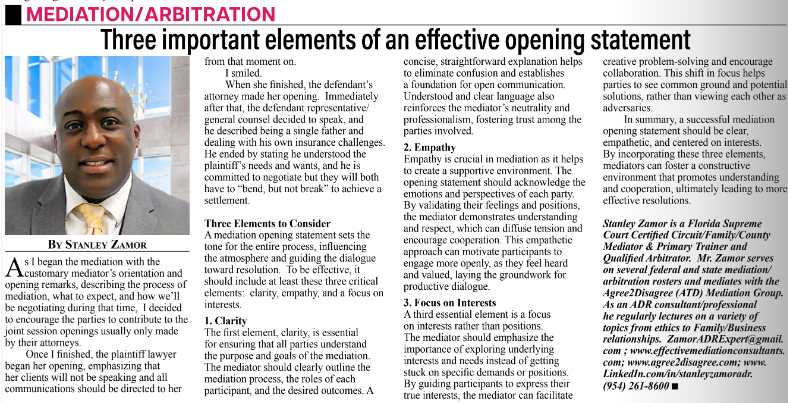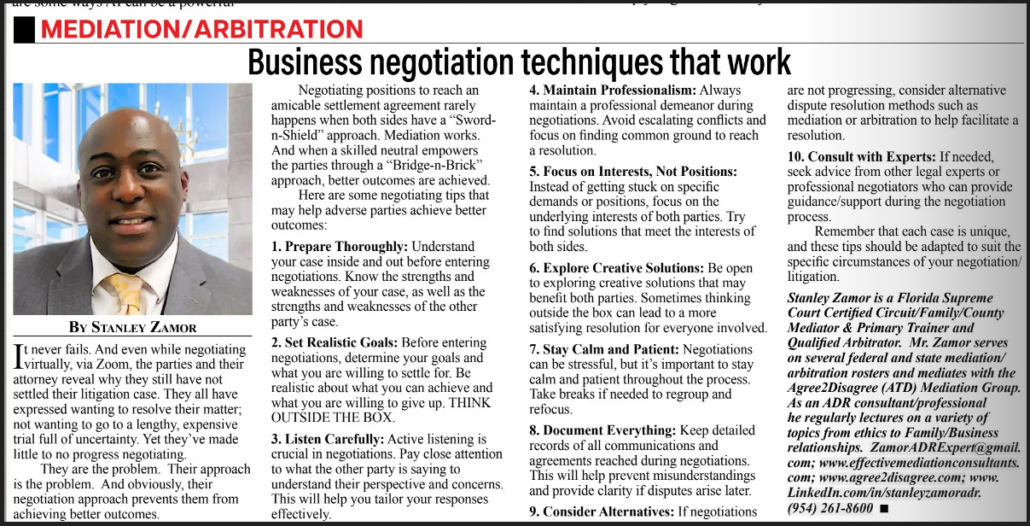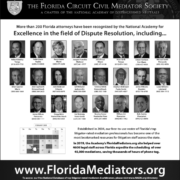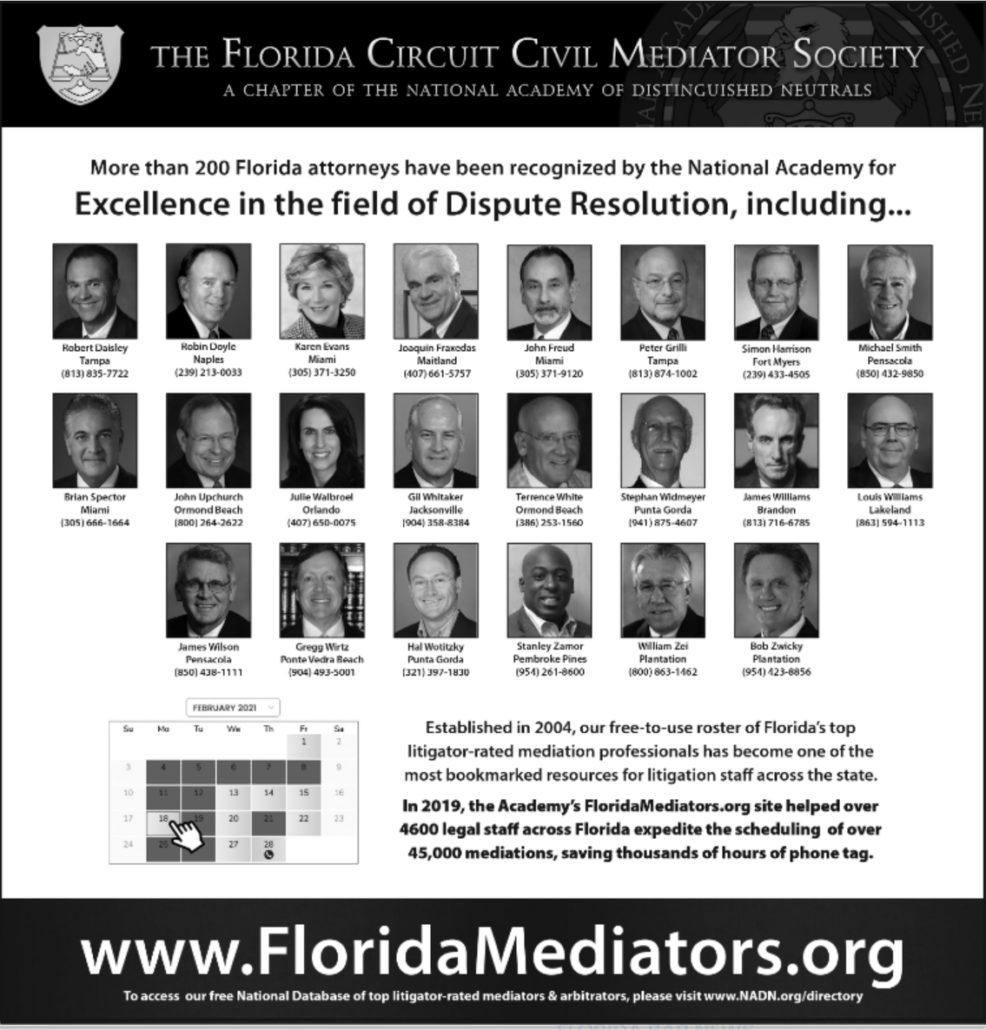Three Important Elements of an Effective Opening Statement
Three Important Elements of an Effective Opening Statement
As I began the mediation with the customary Mediator’s Orientation/Opening Remarks describing the process of mediation, what to expect, and how we’ll be negotiating during that time. I decided to encourage the parties to contribute to the joint session openings usually only made by their attorneys. Once I finished, the plaintiff lawyer began her opening emphasizing that her clients will not be speaking and all communications should be directed to her from that moment on. I smiled. When she finished, the Defendant’s Attorney made her opening. Immediately after she finished, the Defendant Representative/General Counsel, decided to speak and he described being a single father and dealing with his own insurance challenges. He ended by stating he understood the Plaintiff’s needs/wants and he is commitment to negotiate but they will both have to “bend, but not break” to achieve a settlement.
Three Elements to Consider
A mediation opening statement sets the tone for the entire process, influencing the atmosphere and guiding the dialogue toward resolution. To be effective, it should include at least these three critical elements: clarity, empathy, and a focus on interests.
- Clarity
The first element, clarity, is essential for ensuring that all parties understand the purpose and goals of the mediation. The mediator should clearly outline the mediation process, the roles of each participant, and the desired outcomes. A concise, straightforward explanation helps to eliminate confusion and establishes a foundation for open communication. Understood and clear language also reinforces the mediator’s neutrality and professionalism, fostering trust among the parties involved.
2. Empathy
Empathy is crucial in mediation as it helps to create a supportive environment. The opening statement should acknowledge the emotions and perspectives of each party. By validating their feelings/positions, the mediator demonstrates understanding and respect, which can diffuse tension and encourage cooperation. This empathetic approach can motivate participants to engage more openly, as they feel heard and valued, laying the groundwork for productive dialogue.
3. Focus on Interests
A third essential element is a focus on interests rather than positions. The mediator should emphasize the importance of exploring underlying interests and needs instead of getting stuck on specific demands or positions. By guiding participants to express their true interests, the mediator can facilitate creative problem-solving and encourage collaboration. This shift in focus helps parties to see common ground and potential solutions, rather than viewing each other as adversaries.
In summary, a successful mediation opening statement should be clear, empathetic, and centered on interests. By incorporating these three elements, mediators can foster a constructive environment that promotes understanding and cooperation, ultimately leading to more effective resolutions.
Stanley Zamor is a Florida Supreme Court Certified Circuit/Family/County Mediator & Primary Trainer and Qualified Arbitrator. Mr. Zamor serves on several federal and state mediation/arbitration rosters and mediates with the Agree2Disagree (ATD) Mediation Group. As an ADR consultant/professional he regularly lectures on a variety of topics from ethics to Family/Business relationships. ZamorADRExpert@gmail.com ; www.effectivemediationconsultants.com; www.agree2disagree.com; www.LinkedIn.com/in/stanleyzamoradr. (954) 261-8600














